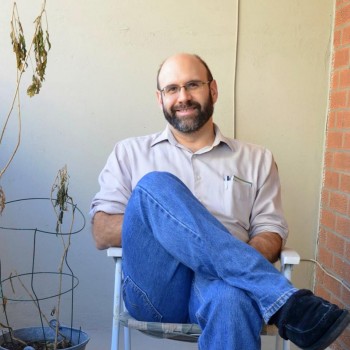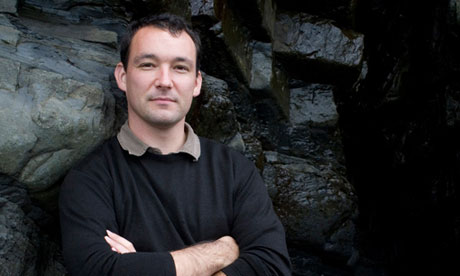In The Long Dry, Jones writes very well about ducks, their sex lives, and their feces. In fact, if there were an International Literary Prize for Writing about Ducks, Their Sex Lives, and Their Feces, Jones would easily win it. These passages are moments of levity in an otherwise dark, brooding, brutal and devastating novel. –Mark Sampson
The Long Dry
Cynan Jones
Coffee House Press, 2017
136 pages; $15.95
.
If there’s one thing novelist Cynan Jones knows very well, it is the menace of ducks. Ducks are a menace. Anyone who grew up on or near farmland knows this. Ducks have a way of wreaking havoc on a farm, especially with their feces. Cynan Jones knows this. In his novella, The Long Dry, Jones writes very well about ducks, their sex lives, and their feces. In fact, if there were an International Literary Prize for Writing about Ducks, Their Sex Lives, and Their Feces, Jones would easily win it. Behold:
Given the way they have to have sex, it’s remarkable that there are any ducks. More remarkable that they have sex often. The male more or less drowns the female, who has to focus hard on staying afloat, and they both have to deal with wings and beaks and water and feathers, and it looks nasty, and they still have sex. So there were a great many ducks. And they all shat everywhere.
It became a problem for the tourists, and the locals didn’t like it. People talked about the ducks in pubs, and if you stood in lines at the local shops you heard people talk about ducks … If you put your washing out, somehow the ducks knew, and by some defiance of physics managed to crap on it. And duck crap isn’t nice. It’s green like baby shit. If you fed a baby on broccoli for a week …
The reason why they shat so much … was because “the people” fed them chips, whoever “the people” were. A duck should eat things from the water; that’s what they’re designed to do. But they were lazy and so hoovered up whatever people threw them, fighting off the seagulls and the errant starlings and the pigeons and, if they had to, fighting off each other, too. This poor diet is making the poor ducks poo. That was one take. Answer: we should give them proper food. Genius. So they tried. It was not the answer. They ate the food put down and the fish and chips and had sex even more. Ducks’ arses were no tighter than they’d ever been. There were simply too many ducks.
This passage is a moment of levity in an otherwise dark, brooding, brutal and devastating novel. The Long Dry is Jones’ debut book, first published in the U.K. in 2006 and made available in North America this year by Coffee House Press. Jones has published several other books in the years since, including The Dig, Bird, Blood, Snow, and Everything I Found on the Beach. His prose has been compared to that of Cormac McCarthy and Ernest Hemingway – that is, lines of spare, almost taciturn beauty that belie the tension and fraught emotions that coil below the surface by using short, compact sentences with a deceptively simple syntax that carries a surprising amount of descriptive weight. It is a style that could (and, perhaps, should) be labelled derivative of those two masters, but it is also one that serves the setting and themes of The Long Dry well.
This short novel (my reviewer’s copy is paginated at just 119 pages) is set on a hardscrabble farm in Wales. Jones structures the book using many briefly, almost elliptical chapters that act as a kind of narrative pointillism, slowly painting us a bigger picture. Our protagonist is Gareth, who inherited the farm from his father and lives there with his wife, Kate, and their two children, Dylan and Emmy. A couple of issues become apparent at the beginning of the book: a harsh and unforgiving drought has swept across the countryside, and a pregnant cow on Gareth’s farm has gone missing. These two misfortunes will prove the catalyst for a series of vignettes that will reveal the various physical, financial, sexual and psychological deprivations surrounding this family. As the reader soon learns, Gareth’s is a world plagued with miscarriages, sexual frigidity, infidelity, money woes and a looming family tragedy.
The novel’s central tension exists between Gareth and his wife, Kate. They do love each other but they are, we come to learn, very often on opposite sides when it comes to matters of the farm and their own success on it. Much of what divides them is the hard road they had to travel to give birth to Dylan and Emmy, as the couple suffered multiple miscarriages between their births:
They continued to try, first easily then with more need, to give their son a brother or sister. She miscarried twice. On the third time they told her she couldn’t have children then. She was thirty-four and damp like autumn, not wet in the way young women are, like spring, but damp and rich and earthy, and it didn’t seem right that she could not have a child. She was fertile and hungry, like fallen leaves.
In the midst of all this, Kate allows her herself to engage in a brief and regretful dalliance with a farmhand one day while Gareth is away. The encounter is short and loveless – the farmhand basically fucks her against a filthy tractor tire in the shed – and yet it casts Kate into a deep depression and acts of self-harm. Gareth, as far as we can tell, does not learn the truth: “It was two years before she was well again but she still feels sick now when she thinks of what she did, and the nagging doubt haunts her sometimes. It has never been the same since then. He blamed it on the miscarriages.” Through her depression, we can see how much more the farm means to Gareth than it does to her, and this divide will lead to an explosive exchange between them near the end of the novel.
Gareth’s father purchased the farm in 1951 to quit a job at a bank that he hated. Jones gives us little detail about how the father’s views on farming varied from his son’s, but one is left with the impression that Gareth’s holds an idealized view of what this land meant to his father and he is desperately trying to live up to an unspoken sense of expectation. A key link between the previous generation’s farming and Gareth’s is the story of Bill, who comes from the farm next door. Bill’s father killed himself after the hogs he had invested money in contracted a rare disease and had to be destroyed. Bill himself is described as “simple”, and never fully grasps that his family actually sold the farm prior to his father’s suicide or that the family must move into the village afterward. In an act of charity, Gareth’s father gives a portion of his land to Bill in the wake of his father’s death, a kind of pretend farm that Bill is free to work on, and it’s a kindness that Gareth himself continues to extend:
So Gareth’s father gave some land to Bill. He fenced off a few acres by the road and said to Bill it was his land now, and he could farm it. So he takes the orphaned lambs and grows things there and helps out on the farm when help is needed, like a shearing time, and he cuts grass for old ladies in the village and takes people spuds and cabbage, but underneath, as Gareth knows, he doesn’t understand still.
Perhaps fittingly, Bill’s situation on the farm features prominently in the climatic argument between Gareth and Kate near the novel’s end. Kate, fearful of their future, is pushing her husband to sell some of their land to home developers, but Gareth refuses to pull the carpet out from under Bill’s feet. “My father gave him that land,” he tells his snarling wife, “and I won’t take it from him.”
The biggest, and also darkest, irony in The Long Dry is that neither the lingering season of drought nor Gareth’s lost cow about to calve are the worst tragedies about to befall this farm, this family. We are told, in a kind narrative aside, that nine days from the conclusion of the novel’s main action, a fate will befall daughter Emmy that will lead to her sudden death. Emmy, we learn, will lose her life after eating a poisonous mushroom while out for a walk in the woods. The mushroom she eats is one of the most poisonous found in Europe: the amanita virosa, or “destroying angel.” It is especially lethal due to a delay between initial ingestion and the onset of symptoms.
Indeed, Jones goes into great chemical detail as to what happens to Emmy’s body as the toxins move through her after she eats the fungus; and it is startling how much emotional power he’s able to rend out of such a clinical description. Emmy’s death hits us hard, not because we have gotten to know her particularly well over the preceding 80-odd pages, but because Jones frames her death as just another hardship that comes from farm life, from an existence so very dependent on grappling with the natural world in all its capriciousness. Somehow, this makes Emmy’s fate even more devastating.
Thankfully, there are glimmers of hope that come near the end of The Long Dry – in the somewhat predictable form of the arrival of rain. It is what we, and Gareth’s family, are left with: the sky opening up and giving us a reprieve from all that has taken its toll on us, but also a reprieve from the even darker tragedies that await us in the wings.
—Mark Sampson
N5

Mark Sampson has published two novels, Off Book (Norwood Publishing, 2007) and Sad Peninsula (Dundurn Press, 2014), a short story collection, The Secrets Men Keep (Now or Never Publishing, 2015), and a collection of poetry, Weathervane (Palimpsest Press, 2016). His new novel, The Slip, is forthcoming from Dundurn Press in 2017. Mark’s stories, poems, reviews and essays have appeared in numerous literary journals throughout Canada and the United States. Originally from Prince Edward Island, he now lives and writes in Toronto.
.
.

